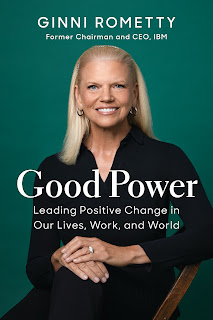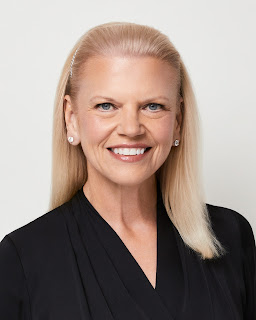Former IBM Chairman and CEO Ginni Rometty led one of the most high-stakes corporate transformations in business history. Just as impressive was her personal transformation, having overcome childhood challenges to become one of the world’s most influential business leaders (Fortune magazine’s #1 Most Powerful Woman three years in a row).
The catalyst was a mindset she calls “good power.” The story of how she discovered this touchstone and uses it throughout her life and work, and her advice on how others can, too, is told in her new book Good Power: Leading Positive Change in Our Lives, Work, and World.
“I think the best way to describe what I’ve written is memoir with purpose, because I write about my experiences through the lens of an idea much bigger than me and my life, one that relates to all of us: how we can drive meaningful change in positive ways for ourselves, our organizations, and for the many, not just the few, “ says Rometty.
Divided into three sections—Me, We, and Us—the book provides you the actionable advice of a personal coaching session. It also via inspiring and compelling stories chronicles Rometty’s 40-year rise at IBM to eventually become its ninth and first woman CEO.
Most important, you’ll learn more about Rometty’s five principles of Good Power:
- Be in Service Of. Strive to make someone or something better by meeting their needs.
- Build Belief. Use influence, not authority, to inspire people to willingly embrace change.
- Know What Must Change, What Must Endure. Make tough choices by thinking critically, creatively, and honestly.
- Steward Good Tech. Drive trust and inclusion in our digital age by doing what’s right for the long term, speaking out, and advocating for others.
- Be Resilient. Change takes time; the right relationships and attitude help us persevere.
Today, as co-chair of the non-profit OneTen, good power drives Rometty’s mission to connect millions of people without college degrees to family-sustaining jobs, part of a larger movement to get companies to hire for skills not only degrees so they can fill open positions and expand economic mobility.
Thank you to the book’s publisher for sending me an advance copy of the book.


Comments
Post a Comment